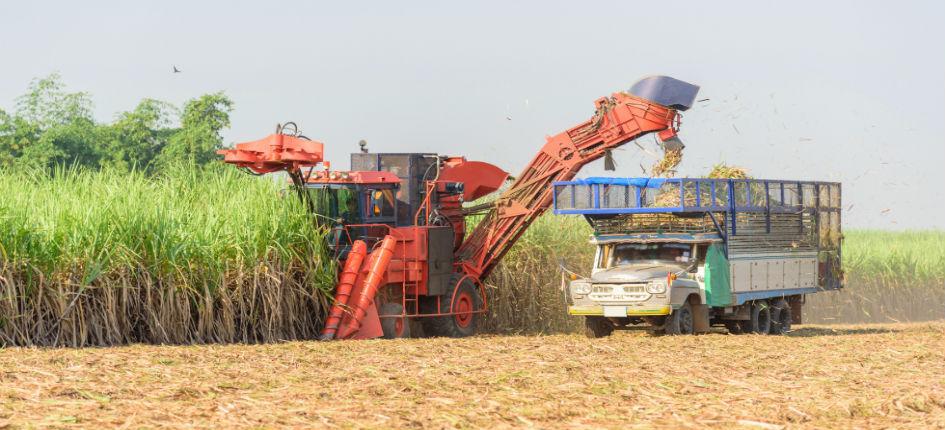Brazil’s vast territorial expanse and climate diversity allow the country to produce a wide range of agricultural products. The country is the world’s largest producer of coffee, orange juice and sugar, the 2nd largest of beef and soy beans, the 3rd largest of corn and poultry, the 4th largest of pork and soy oil, and the 5th largest of cotton, milk and grapes.
Constant growth in the agriculture business
Representing 30% of GDP, agribusiness is one of the few economic sectors that have enjoyed constant growth, even during the long and hard economic crisis of the past years. This means food processing technologies are increasingly in demand. Currently, 85% of the food consumed in the country undergoes some sort of industrial process; this percentage was 70% in 1990 and just 56% in 1980. The Brazilian food and beverage industry alone generates a turnover of US$ 170 billion per year, which represents 9.5% of GDP. It is one of the largest in the world, with 45,000 companies, of which 86% are SMEs with fewer than 20 employees.
There are also large multinational groups operating in the country, like Nestlé, Unilever, Bunge, Kraft and Cargill.
In 2018, the beverage industry’s net revenue was R$ 127.7 billion, which, added to the R$ 528.3 billion generated by the food industry, totals R$ 656 billion, a very substantial amount. Most of the production is concentrated in the country’s large urban areas, particularly the state of Sao Paulo, where a considerable number of processing companies are concentrated.
Food processing in the domestic market
The domestic market absorbs 80% of the food processing production, the main categories being: meat byproducts, tea, coffee, industrialized cereals, dairy products, oils and fats, refined sugar, wheat products, fruit and vegetable products, chocolate and candies, dried and frozen products, and canned fish. The categories with the highest increases were canned vegetable (8.1%), dried and frozen food (3.1%), and oils and fats (1.7%).
Positive forecast for 2019
Although the produce exported is just a fraction of the total production, Brazil is the world’s largest processed food exporter by volume, and the 5th largest by value. It is worth highlighting orange juice in particular, of which it is the largest producer and exporter. The forecast for 2019 is positive, with an increase of 2.5 to 3% by volume and 3 to 4% by revenue, totaling US$ 40 billion in exports.
Challenges and opportunities for the food industry in Brazil
To incentivize innovation, the Brazilian government reduced import duties for 322 machines in 2017, generating a reduction of R$ 28 million in the cost of investment for the beneficiary companies. Among the sectors that benefited from this measure, 11.85% of the equipment imported was to supply the beverage industry and 4.47% was for the food industry. These imports helped in the construction of new research centers to develop and improve production.
The technologies used in the sector for which demand is expected to be high next year are:
- High Pressure Processing (HPP)
- Microwave Heating (MWH)
- Ultraviolet light
- Pulsed Electrical Field (PEF)
In addition, all types of technologies that respond to the requirements of today’s customer are important. These requirements relate mainly to nutritional properties and the way food is produced, avoiding the high environmental impact of production and packaging. There is increasing pressure on the food industry to adopt processes and procedures that save water and energy. Consumers are also increasingly asking the industry to reduce the amount of sodium and sugar in processed food as well as to create more ready meals for children.
Attractive opportunities for Swiss companies
There are a number of attractive opportunities worth highlighting, particularly with regard to the orange juice sector. After the juice is extracted, the peel and pulp are reused for other purposes, especially in the production of animal food. As a result, technologies that enable prior processing of these byproducts have a good chance of success in the market. Another important aspect is productivity, which is a key element in a country like Brazil, where there are only two harvests per year. In addition, other technologies in demand are ultrasound for beverage production, especially for coconut water.


